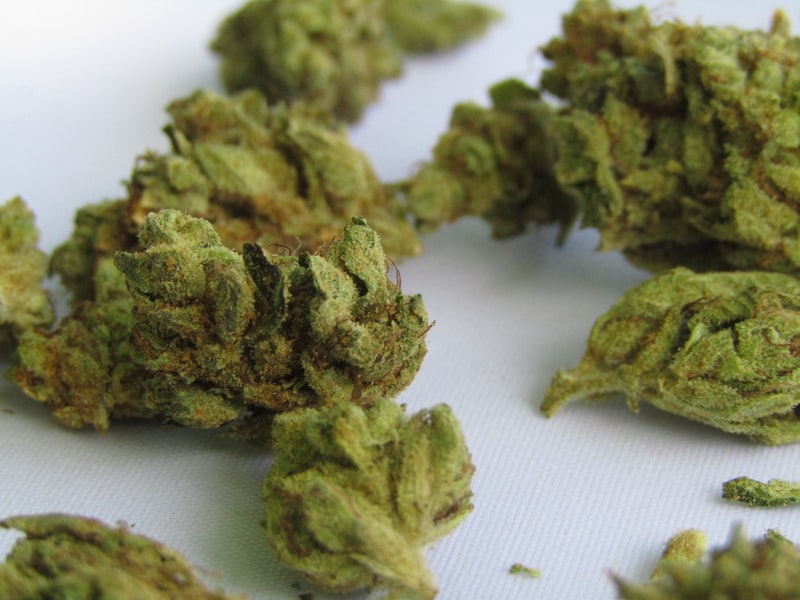In most states, including Minnesota, marijuana is either entirely prohibited or only legal for limited medicinal purposes. Additionally, any possession of marijuana is a federal crime. So, if you smoke a joint outside a deferral building or put a dime bag in your carryon luggage, you could face very serious charges.
Even if the state or municipality has decriminalized marijuana charges, as has happened in many places, marijuana possession is still a criminal offense and you must still go to court. Furthermore, sometimes the principle of the thing really is what matters. If we do not stand up for our rights, the government will take more of them away.
Overall, law enforcement officers file a slew of drug possession charges, mostly because they believe these offenses are easy to prove in court. But that’s not true for drug possession charges in general. It’s certainly not true for marijuana possession charges in particular.
In fact, a Minneapolis criminal defense lawyer or other advocate can usually pull the rug out from under the state in these situations.
Search and Seizure Issues
The Fourth Amendment requires police officers to have a valid warrant before they can search for property and seize it. However, the warrant requirement only applies to “unreasonable” searches and seizures. So, if police officers have probable cause, they do not need a warrant to seize marijuana or any other contraband.
In this context, reasonableness is not a subjective term. It only applies in specific situations. Some common ones include:
- Plain View: Marijuana has a very distinctive look and smell. Officers often focus on these distinctions when they seize marijuana without a warrant. But as outlined below, these physical characteristics don’t always hold up in court.
- Consent: An owner or apparent owner, like a roommate whose name isn’t on the lease, may consent to a property search. Normally, officers cannot bully people into consent. If that happens, the consent arguably is not voluntary.
- Pat-Down Search: These stop-and-frisk searches are very controversial. They are illegal in some places, but mostly, judges liberally allow them, if officers testify that they reasonably believed the suspect had a weapon. And, you guessed it, that’s what they usually say.
A few other exceptions apply as well, such as a limited search incident to arrest. But these exceptions don’t come up in marijuana cases very frequently.
Marijuana vs. Hemp
As mentioned, marijuana has a distinctive look and smell. Hemp, with is basically cannabis without THC, has these exact same qualities. The big difference is that hemp is fully legal in all fifty states. So, even if the substance looks like a duck, quacks like a duck, and swims like a duck, it might not be a duck.
A chemical THC content test is the only way to tell the difference between these two substances. Because these tests are so expensive, and the penalty for marijuana possession is so low, especially in decriminalized areas, this test might be unavailable. In fact, in 2019, the Texas Department of Public Safety told troopers not to make marijuana arrests, because prosecutors could not prove the charges.
Usually, this burden of proof is beyond a reasonable doubt. So, in criminal cases, a chemical test is a must-have. In some places, low-level marijuana possession isn’t technically a criminal offense. So, a lower burden of proof could apply.
Establishing Possession in Court
Even if the evidence is admissible and the state proves it is illegal, the defendant could still walk free. That’s because the state must also prove all the legal elements of possession. In addition to proximity, these legal elements are knowledge and control.
Assume Monique and her friends are passing a joint at a party. Officers arrive in response to a noise complaint and arrest everyone at the party. Under these facts, unless the party was outrageously large, establishing knowledge and proximity wouldn’t be a problem. Control is a different matter. Most likely, someone must testify that she/he saw Monique holding the joint. Lots of luck finding a witness who will come forward with that kind of statement.
If the evidence in any of these three areas is weak, prosecutors normally offer pretrial diversion. Defendants don’t plead guilty and, if they successfully complete all program requirements, prosecutors dismiss the case. Pretrial diversion is normally, but not always, a good solution. So, a Minneapolis criminal defense lawyer should always review your case before you sign anything.
Please be aware that this article was written and published in conjunction with the help of Gorilla Webtactics, Law Firm Marketing Agency, and does not contain legal advice. Please do not act or refrain from acting based on anything you read in this article.
Read Also: Needs to Know About Cannabis Law
About the Author
Cody Wright is an attorney in Gerald Miller, P.A., a Minnesota criminal defense firm. In addition to drug charges defense, Cody routinely handles DWIs and other serious criminal offenses. He is a widely respected attorney who knows what it takes to beat criminal charges in court. Click here for more information.
